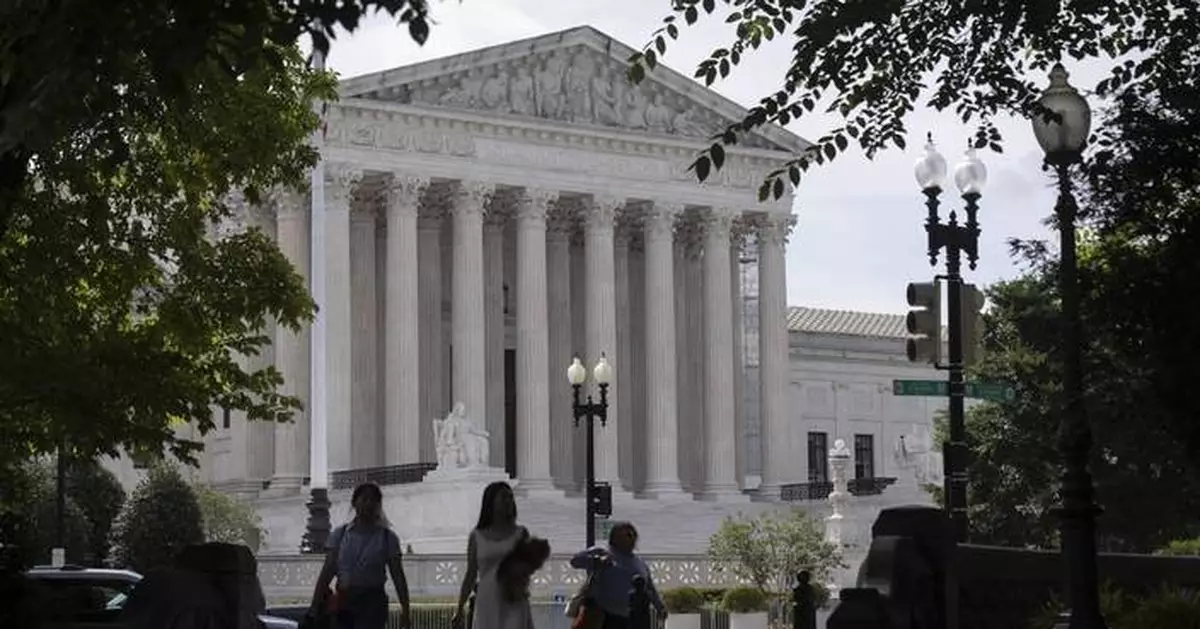WASHINGTON (AP) — The Environmental Protection Agency will not be able to enforce a key rule limiting air pollution in nearly a dozen states while separate legal challenges proceed around the country, under a Supreme Court decision Thursday.
The EPA’s “good neighbor” rule is intended to restrict smokestack emissions from power plants and other industrial sources that burden downwind areas with smog-causing pollution.
Three energy-producing states — Ohio, Indiana and West Virginia — challenged the rule, along with the steel industry and other groups, calling it costly and ineffective.
The Supreme Court put the rule on hold while legal challenges continue, the conservative-led court’s latest blow to federal regulations.
The high court, with a 6-3 conservative majority, has increasingly reined in the powers of federal agencies, including the EPA, in recent years. The justices have restricted EPA’s authority to fight air and water pollution, including a landmark 2022 ruling that limited EPA’s authority to regulate carbon dioxide emissions from power plants that contribute to global warming.
The court is also weighing whether to overturn its 40-year-old Chevron decision, which has been the basis for upholding a wide range of regulations on public health, workplace safety and consumer protections.
A look at the good neighbor rule and the implications of the court decision.
The EPA adopted the rule as a way to protect downwind states that receive unwanted air pollution from other states. Besides the potential health impacts from out-of-state pollution, many states face their own federal deadlines to ensure clean air.
States such as Wisconsin, New York and Connecticut said they struggle to meet federal standards and reduce harmful levels of ozone because of pollution from out-of-state power plants, cement kilns and natural gas pipelines that drift across their borders.
Ground-level ozone, commonly known as smog, forms when industrial pollutants emitted by cars, power plants, refineries and other sources chemically react in the presence of sunlight. High ozone levels can cause respiratory problems, including asthma and chronic bronchitis. People with compromised immune systems, the elderly and children playing outdoors are particularly vulnerable.
Judith Vale, New York’s deputy solicitor general, told the court that for some states, as much as 65% of smog pollution comes from outside its borders.
States that contribute to ground-level ozone must submit plans ensuring that coal-fired power plants and other industrial sites do not add significantly to air pollution in other states. In cases where a state has not submitted a “good neighbor” plan — or where EPA disapproves a state plan — a federal plan is supposed to ensure downwind states are protected.
The Supreme Court decision blocks EPA enforcement of the rule and sends the case back to the U.S. Court of Appeals for the District of Columbia Circuit, which is considering a lawsuit challenging the regulation that was brought by 11 mostly Republican-leaning states.
An EPA spokesman said the agency believes the plan is firmly rooted in its authority under the Clean Air Act and “looks forward to defending the merits of this vital public health protection" before that appeals court.
The spokesman, Timothy Carroll, said the Supreme Court's ruling will "postpone the benefits that the Good Neighbor Plan is already achieving in many states and communities.''
While the plan is on pause, "Americans will continue to be exposed to higher levels of ground-level ozone, resulting in costly public health impacts that can be especially harmful to children and older adults,'' Carroll said. Ozone disproportionately affects people of color, families with low incomes, and other vulnerable populations, he said.
Rich Nolan, president and CEO of the National Mining Association, said he was pleased that the Supreme Court "recognized the immediate harm to industry and consumers posed by this reckless rule. No agency is permitted to operate outside of the clear bounds of the law and today, once again, the Supreme Court reminded the EPA of that fact.''
With a stay in place, Nolan said the mining industry looks forward to making its case in court that the EPA rule “is unlawful in its excessive overreach and must be struck down to protect American workers, energy independence, the electric grid and the consumers it serves,.”
The EPA rule was intended to provide a national solution to the problem of ozone pollution, but challengers said it relied on the assumption that all 23 states targeted by the rule would participate. In fact, only about half that number of states were participating as of early this year.
A lawyer for industry groups that are challenging the rule said it imposes significant and immediate costs that could affect the reliability of the electric grid. With fewer states participating, the rule may result in only a small reduction in air pollution, with no guarantee the final rule will be upheld, industry lawyer Catherine Stetson told the Supreme Court in oral arguments earlier this year.
The EPA has said power-plant emissions dropped by 18% in 2023 in the 10 states where it has been allowed to enforce its rule, which was finalized last year. Those states are Illinois, Indiana, Maryland, Michigan, New Jersey, New York, Ohio, Pennsylvania, Virginia and Wisconsin. In California, limits on emissions from industrial sources other than power plants are supposed to take effect in 2026.
The rule is on hold in another dozen states because of separate legal challenges. The states are Alabama, Arkansas, Kentucky, Louisiana, Minnesota, Mississippi, Missouri, Nevada, Oklahoma, Texas, Utah and West Virginia.
Critics, including Republicans and business groups, call the good neighbor rule an example of government overreach.
The EPA rule and other Biden administration regulations “are designed to hurriedly rid the U.S. power sector of fossil fuels by sharply increasing the operating costs, ... forcing the plants’ premature retirement,” Republican lawmakers said in a brief filed with the high court.
Supporters disputed that and called the "good neighbor'' rule critical to address interstate air pollution and ensure that all Americans have access to clean air.
“Today’s move by far-right Supreme Court justices to stay commonsense clean air rules shows just how radical this court has become,'' said Charles Harper of environmental group Evergreen Action.
“The court is meddling with a rule that would prevent 1,300 Americans from dying prematurely every year from pollution that crosses state borders. We know that low-income and disadvantaged communities with poor air quality will bear the brunt of this delay,'' Harper said.
Roger Reynolds, senior legal director of the environmental group Save the Sound, said the decision hinders the EPA from protecting states such as Connecticut and New York that suffer from ozone pollution generated in the Midwest.
"We cannot reach healthy air quality for our residents without addressing upwind pollution, in addition to local sources,” Reynolds said.
The rule applies mostly to states in the South and Midwest that contribute to air pollution along the East Coast. Some states, such as Texas, California, Pennsylvania, Illinois and Wisconsin, both contribute to downwind pollution and receive it from other states.
Associated Press writer Susan Haigh in Hartford, Connecticut contributed to this story.
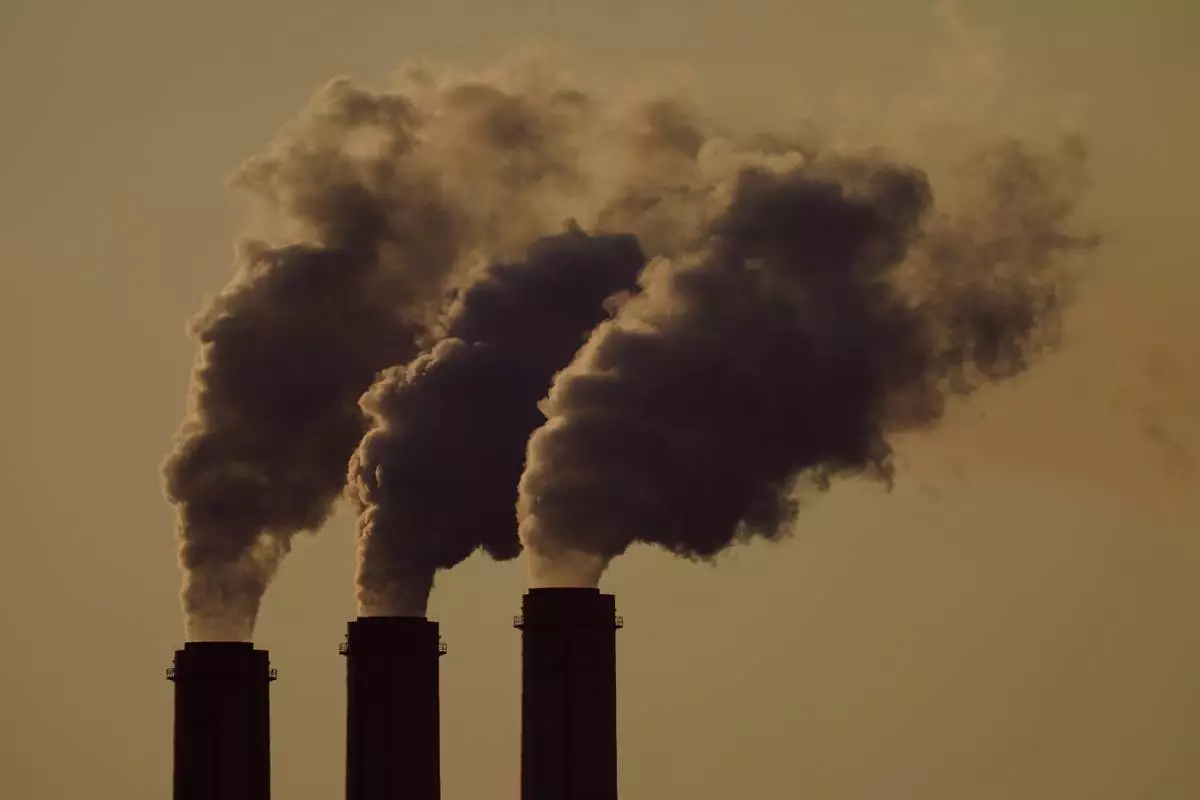
FILE - Emissions rise from smokestacks at the Jeffrey Energy Center coal power plant, near Emmett, Kan., Sept. 18, 2021. The Supreme Court decided Thursday, June 27, 2924, that the EPA won't be able to enforce a key rule limiting air pollution in nearly a dozen states while separate legal challenges proceed around the country. The EPA's "good neighbor" rule is intended to restrict smokestack emissions from power plants and other industrial sources that burden downwind areas with smog-causing pollution.Ohio, Indiana and West Virginia challenged the rule, along with the steel industry and other groups. (AP Photo/Charlie Riedel, File)
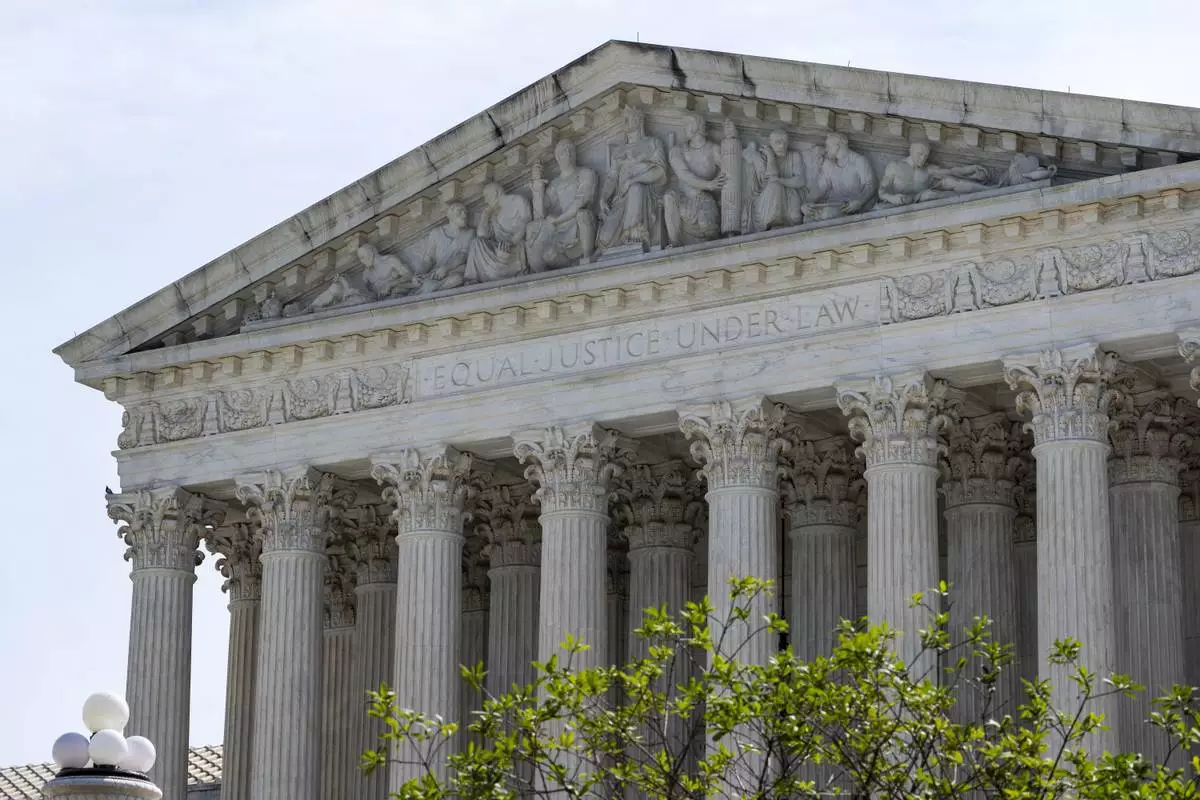
The Supreme Court building is seen, Wednesday, June 26, 2024, in Washington. (AP Photo/Alex Brandon)
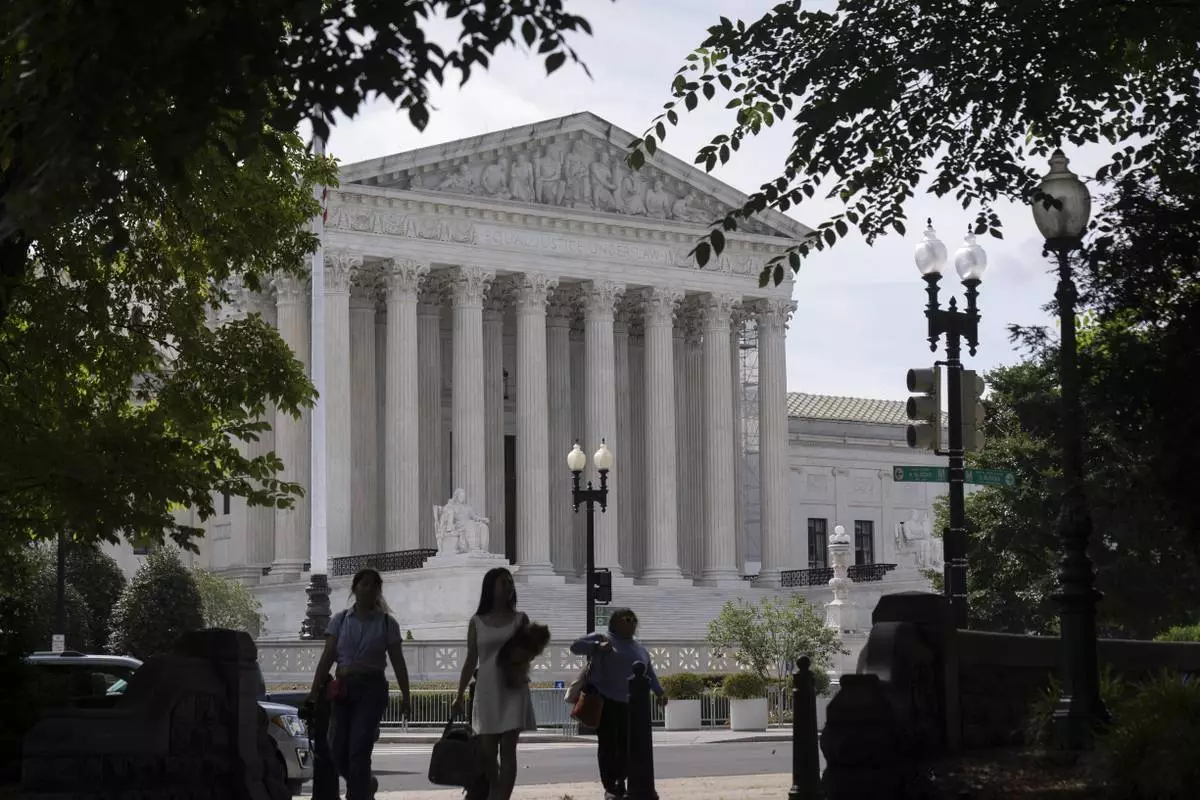
People walk past the Supreme Court on Thursday, June 27, 2024, in Washington. (AP Photo/Mark Schiefelbein)
Beginning Monday, a California law will require credit card networks like Visa and Mastercard to provide banks with special retail codes that can be assigned to gun stores in order to track their sales.
But new laws will do the exact opposite in Georgia, Iowa, Tennessee and Wyoming by banning the use of specific gun shop codes.
The conflicting laws highlight what has quietly emerged as one of the nation's newest gun policy debates, dividing state capitols along familiar partisan lines.
Some Democratic lawmakers and gun-control activists hope the new retail tracking code will help financial institutions flag suspicious gun-related purchases for law enforcement agencies, potentially averting mass shootings and other crimes. Lawmakers in Colorado and New York have followed California's lead.
“The merchant category code is the first step in the banking system saying, `Enough! We’re putting our foot down,'” said Hudson Munoz, executive director of the nonprofit advocacy group Guns Down America. "`You cannot use our system to facilitate gun crimes.’”
But many Republican lawmakers and gun-rights advocates fear the retail code could lead to unwarranted suspicion of gun buyers who have done nothing wrong. Over the past 16 months, 17 states with GOP-led legislatures have passed measures prohibiting a firearms store code or limiting its use.
“We view this as a first step by gun-control supporters to restrict the lawful commerce in firearms,” said Lawrence Keane, senior vice president of the National Shooting Sports Foundation, an industry group that backs laws blocking use of the tracking code.
The new laws add to the wide national divide on gun policy. This past week, U.S. Surgeon General Vivek Murthy declared gun violence a public health crisis, citing a rising number of firearm-related deaths, including more than 48,000 in 2022. The move was quickly criticized by the National Rifle Association.
States have dug opposing trench lines on other gun policies. On July 4, for example, Republican-led Louisiana will become the 29th state to allow residents to carry concealed guns without a permit.
By contrast, Democratic-led New Mexico this year tightened laws for people who don't have concealed-carry permits, requiring a seven-day waiting period for gun purchases, which is more than double the three-day period for a federal background check.
States also have responded differently to recent mass shootings. In Maine, where an Army reservist killed 18 people and wounded 13 others, the Democratic-led Legislature passed a variety of new gun restrictions. Following school shootings in Iowa and Tennessee, the Republican-led legislatures there took steps that could allow more trained teachers to bring guns into classrooms.
The surge of legislation targeting firearm store category codes addresses a behind-the-scenes aspect of electronic financial transactions. The International Organization for Standardization, based in Geneva, sets thousands of voluntary standards for various fields, including category codes for all kinds of businesses, from bakeries to boat dealers to bookstores.
Those category lists are distributed by credit card networks to banks, which assign particular codes to businesses whose accounts they handle. Some credit card issuers use the category codes for customer reward points.
The codes can be used by financial institutions to help identify fraud, money laundering or unusual purchasing patterns that are reported as suspicious activities to the U.S. Treasury Department's Financial Crimes Enforcement Network.
Banks and other depository institutions filed more than 1.8 million confidential reports in 2022 flagging more than 5.1 million suspicious activities. About 4% of annual reports lead to follow-up by law enforcement and an even smaller percentage to prosecution, according to the Bank Policy Institute, a trade group representing large banks.
Stores that sell guns have previously been grouped with other retailers in merchant category codes. Some have been classified as sporting goods stores, others as miscellaneous and specialty retail shops.
At the urging of New York-based Amalgamated Bank, which worked with gun-control groups, the International Organization for Standardization adopted a new four-digit category code for gun and ammunition shops in 2022. Major credit card networks initially said they would implement it but backed off under pressure from conservative politicians and the gun industry.
Munoz, who helped lead the effort to establish the firearms store code, noted credit cards were used to buy weapons and ammunition for some of the nation’s deadliest mass shootings.
The intent of a gun merchant code is to spot suspicious patterns, like a person with little history of gun purchases who suddenly spends large amounts at multiple gun stores in a short period. Once alerted by banks, authorities could investigate, potentially thwarting a mass shooting, Munoz said.
California's new law requires credit card networks to make the firearms code available to banks and other financial institutions by Monday. Those entities then have several months to determine which of their business clients should be categorized as gun stores and assign them new codes by May 1.
Visa, the nation's largest payment network, recently updated its merchant data manual to add the firearms code to comply with California's law.
Democratic-led legislatures in Colorado and New York this year also passed firearms code mandates aligned to kick in with California's next May.
“If there was someone suspiciously purchasing a large number of firearms, right now it would be very difficult to tell," said California state Assemblymember Phil Ting, a Democrat who sponsored the new law. “You couldn’t tell if they were soccer balls or golf balls or basketballs."
Even with a firearms store code, it won't be possible to know whether a particular sale is for a rifle, storage safe or some other product such as hunting apparel.
The state laws prohibiting gun store codes have varying effective dates but typically allow state attorneys general to seek court injunctions against financial institutions using the codes, with potential fines reaching thousands of dollars.
The merchant code could lead more people to buy guns with cash instead of credit in order to protect their privacy, said Dan Eldridge, owner of Maxon Shooter’s Supplies in suburban Chicago. Though his business has yet to be recategorized, Eldridge said he already has placed an ATM in his store.
“Viewed most benignly, this code is an effort to stigmatize gun owners," Eldridge said. "But a more worrisome concern is that this is another private sector end run around the prohibition against the federal government creating a gun registry.”
Iowa state Sen. Jason Schultz, a Republican sponsor of legislation banning the firearms code, said he feared federal agents could gain access to data about gun store purchases from financial institutions, then use that as justification to raid gun owners' homes and infringe on their Second Amendment rights.
“States are going to have to make a choice," he said, "whether they want to follow California or whether they’d like to support the original intent of the U.S. Constitution.”
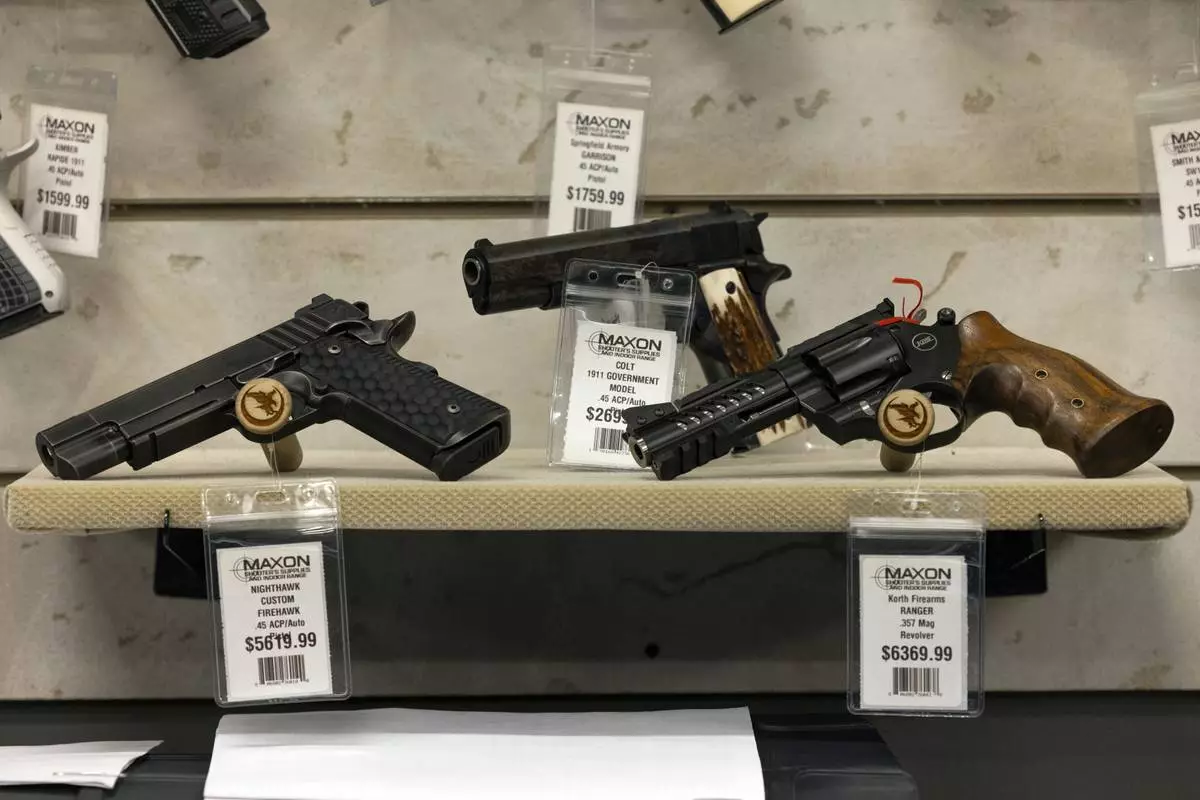
Guns for sale are displayed at Maxon Shooter's Supplies in Des Plaines, Ill., Tuesday, June 25, 2024. A new national divide is emerging among states over whether to track sales by gun stores. A California law taking effect Monday will require credit card networks to provide banks with special retail codes to assign to gun stores. By contrast, new laws taking effect in Georgia, Iowa, Tennessee and Wyoming will prohibit the use of special gun shop codes in financial transactions. A total of 17 states have passed some sort of limit on category codes for gun retailers, while California has been joined by Colorado and New York. (AP Photo/Teresa Crawford)
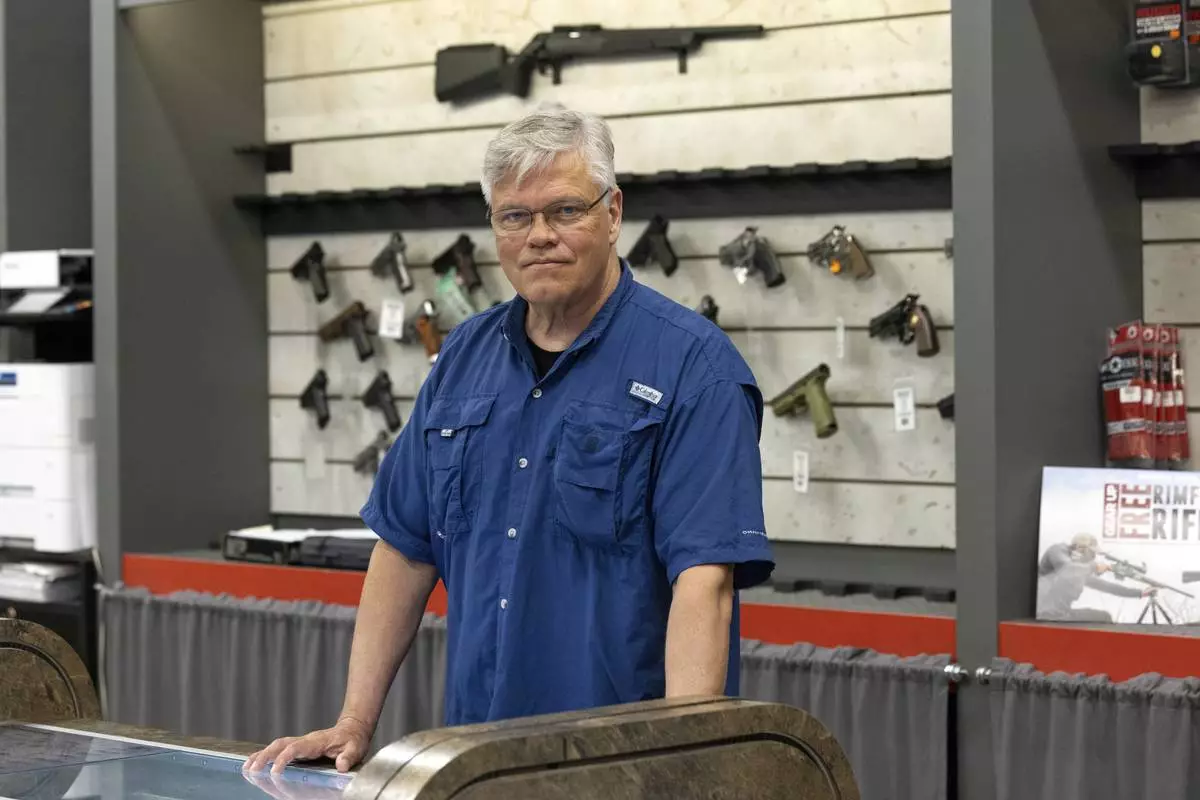
Maxon Shooter's Supplies owner Dan Eldridge poses in his store in Des Plaines, Ill., Tuesday, June 25, 2024. A new national divide is emerging among states over whether to track sales by gun stores. A California law taking effect Monday will require credit card networks to provide banks with special retail codes to assign to gun stores. By contrast, new laws taking effect in Georgia, Iowa, Tennessee and Wyoming will prohibit the use of special gun shop codes in financial transactions. A total of 17 states have passed some sort of limit on category codes for gun retailers, while California has been joined by Colorado and New York. (AP Photo/Teresa Crawford)
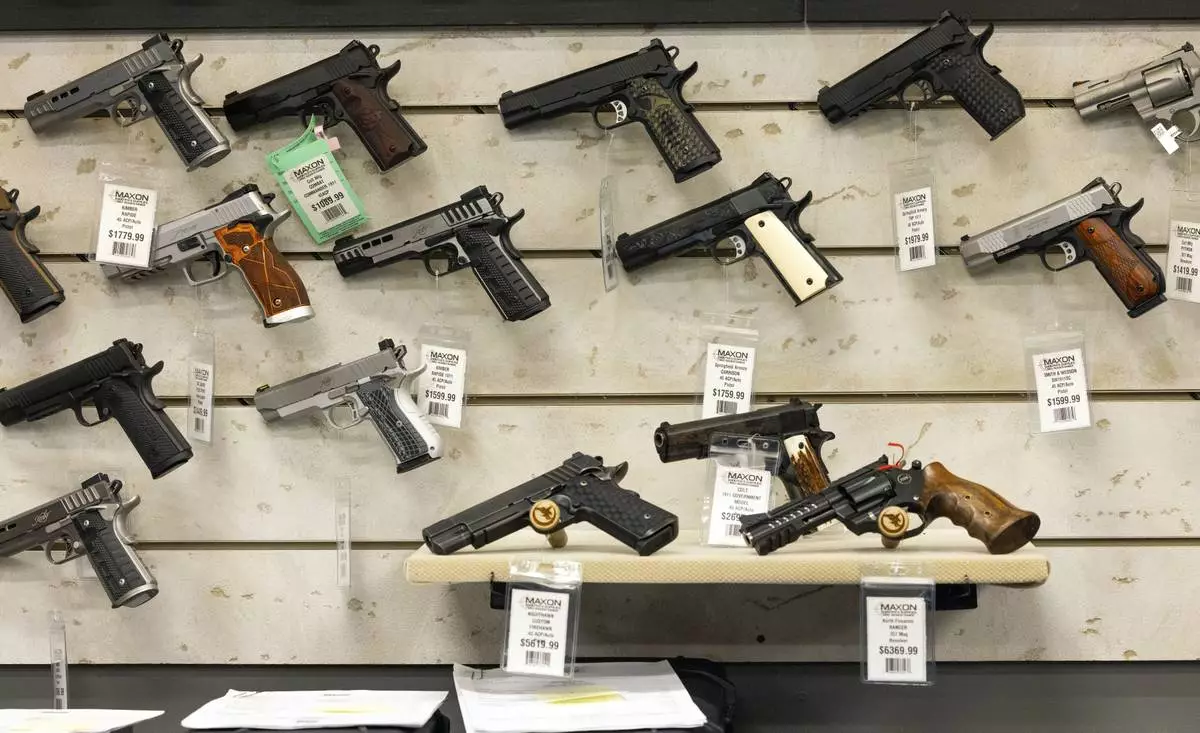
Guns for sale are displayed at Maxon Shooter's Supplies in Des Plaines, Ill., Tuesday, June 25, 2024. A new national divide is emerging among states over whether to track sales by gun stores. A California law taking effect Monday will require credit card networks to provide banks with special retail codes to assign to gun stores. By contrast, new laws taking effect in Georgia, Iowa, Tennessee and Wyoming will prohibit the use of special gun shop codes in financial transactions. A total of 17 states have passed some sort of limit on category codes for gun retailers, while California has been joined by Colorado and New York. (AP Photo/Teresa Crawford)
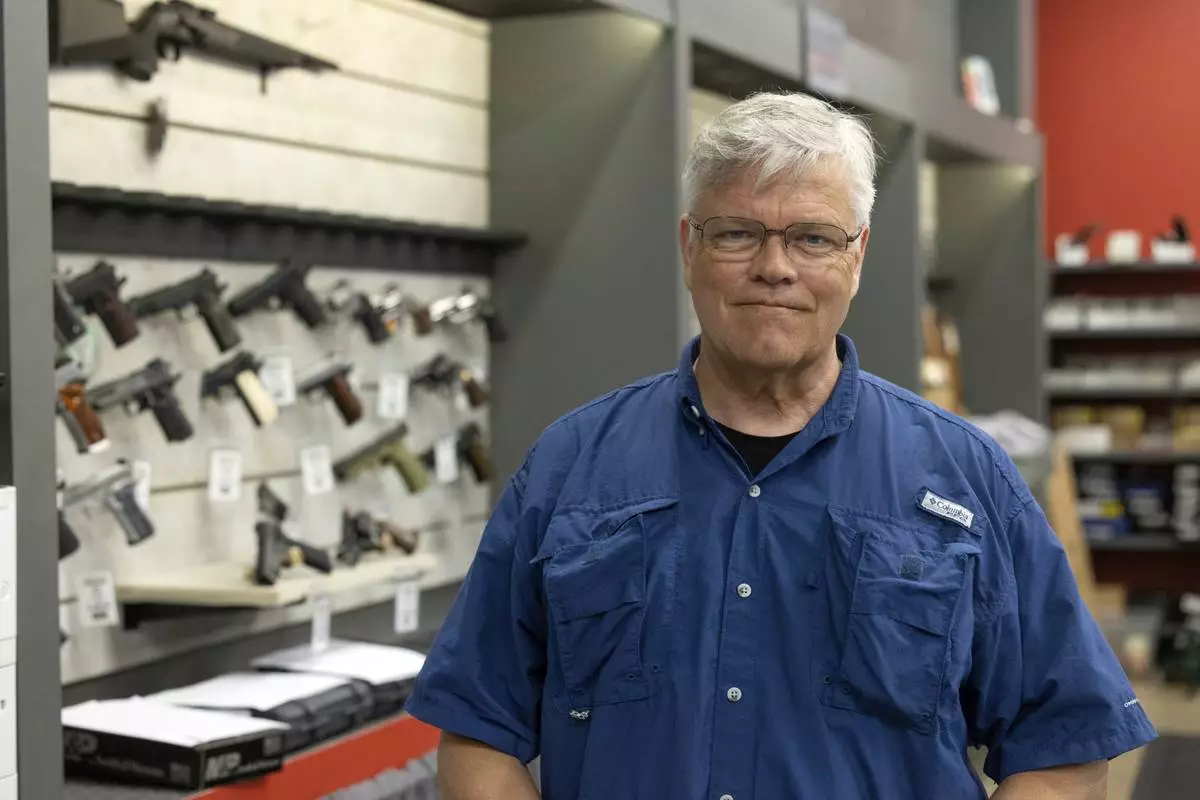
Maxon Shooter's Supplies owner Dan Eldridge poses in his store in Des Plaines, Ill., Tuesday, June 25, 2024. A new national divide is emerging among states over whether to track sales by gun stores. A California law taking effect Monday will require credit card networks to provide banks with special retail codes to assign to gun stores. By contrast, new laws taking effect in Georgia, Iowa, Tennessee and Wyoming will prohibit the use of special gun shop codes in financial transactions. A total of 17 states have passed some sort of limit on category codes for gun retailers, while California has been joined by Colorado and New York. (AP Photo/Teresa Crawford)





